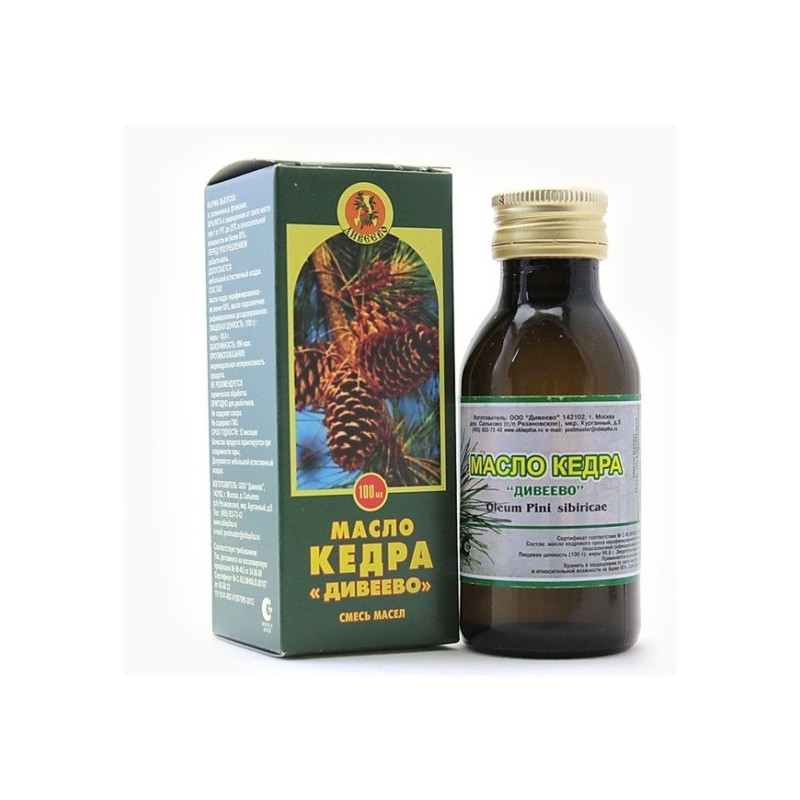



 All payments are encrypted via SSL
All payments are encrypted via SSL
 Full Refund if you haven't received your order
Full Refund if you haven't received your order
Pine nut oil in its energy and biological value exceeds all known vegetable oils, helps to maintain human health for many years, increase the duration of productive life, improves blood composition.
Cedar oil is a pantry of useful substances, especially rich in polyunsaturated acids: oleic, linoleic, linolenic. It is very rich in amino acids and biologically active substances: Retinol (vitamin A), tocopherol (vitamin E), thiamine (vitamin B1), proteins, trace elements (magnesium, manganese, iron, copper, iodine).
Cedar oil is used as an adjunct in the treatment of a number of diseases:
It has a positive effect as an adjunct in the treatment of gastritis, pancreatitis, cholesteritis, erosive and ulcerative diseases of the stomach and duodenum;
has a tonic effect (restores the strength of people who have undergone abdominal surgery, severe physical and psychological stress, nervous stress);
improves blood composition, promotes hemoglobin growth;
regulates lipid metabolism, because reduces the level of cholesterol in the blood;
promotes the growth of the child's body;
has a beneficial effect on skin tissue, in cosmetology it is used to moisturize and nourish the skin, restores its elasticity and slows down the aging process;
acts as a tanning agent, protecting the skin from draining, protects against the adverse effects of ultraviolet rays;
to give a better taste, you can add to the pastry dough and use for dressing salads.
Way to use
Adults and children over 12 years old 1 tsp 3 times daily before meals.
A list of some of the main components that make up cedar oil
Vitamin B1.................. 0.39-0.66%
Vitamin B2.................. 0.14-1.17%
Vitamin B3.................. 1.05-1.40%
Vitamin E.................... 9-10.12%
Copper............................ up to 4%
Magnesium......................... up to 5.51%
Manganese..................... up to 16%
Silicon....................... up to 3.2%
Vanadium....................... up to 0.037%
Potassium........................... up to 0.659%
Phosphorus........................ up to 0.84%
Calcium....................... up to 0.11%
Molybdenum..................... up to 0.2%
Nickel......................... up to 0.078%
Iodine.............................. up to 0.5%
Tin.......................... up to 0.0029%
Bor.............................. up to 0.0002%
Zinc............................ up to 0.13%
Iron........................ up to 0.19%
As well as barium, titanium, silver, aluminum, iodides, cobalt, sodium, carbohydrates (including glucose, fructose, sucrose, starch, dikstriny, fiber, ash) proteins related to albumin, globulins, glothelins and multivitamins.
